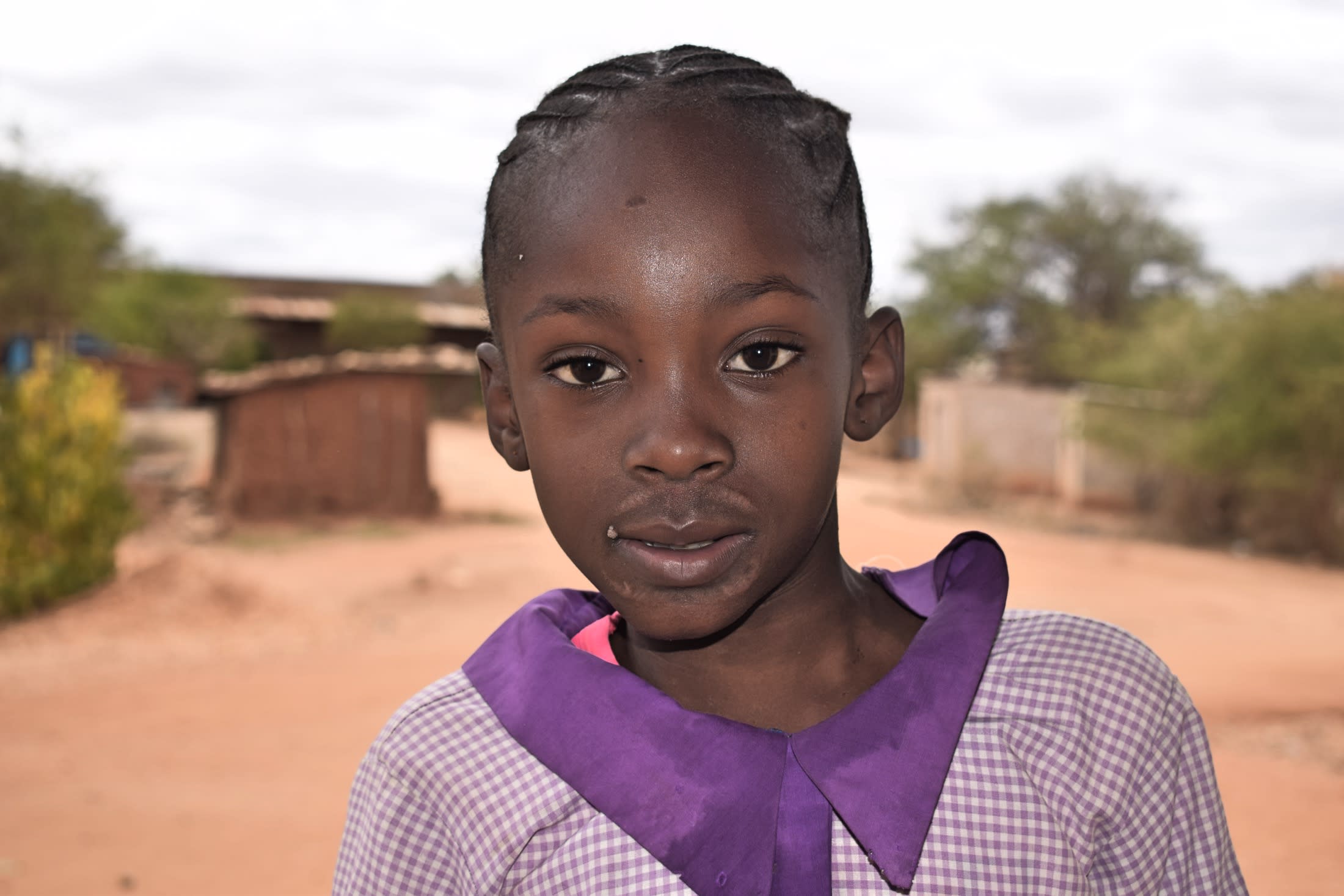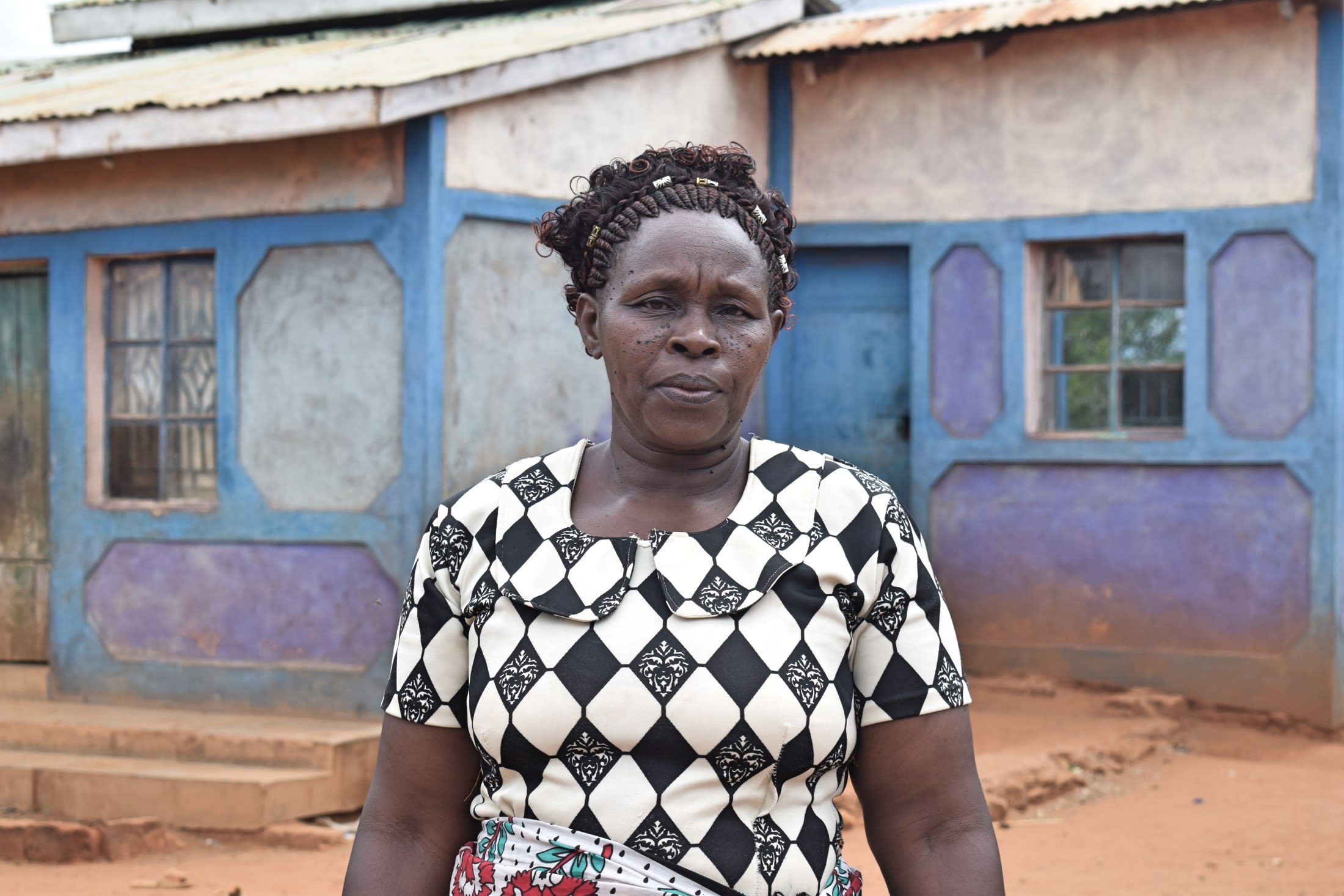The 250 people of Muthungue would love to have enough water to accomplish all their daily tasks like cooking, cleaning, and laundry, but with the distance to the water point being so far, they simply can't manage it.
Because acquiring water takes such a long time, people in Muthungue get less of it. Without water to do essential daily tasks, people’s normal routines are disrupted, and important things like working and going to school are challenging.
Rather than making the several-kilometer journey to the nearest protected shallow well, some community members opt to fetch water from closer, less reliable sources: holes dug into dry riverbeds shared with wildlife and domestic animals. But this understandable compromise has consequences for their health, given that these sources are salty and contaminated.
"At times, I often get stomach upsets, especially when it's very dry and the sun is scorching, because I tend to dig a scoop hole nearby so that I reduce the distance," said 11-year-old Eunice M (pictured below).

Others within the same Self-Help Group have built sand dams with shallow wells in the best spot to ensure that water stays where it's needed. However, those on the fringes of the community have the same problems as before these interventions were made.
"Water scarcity currently is affecting me as my family lives very far [away] from the sand dam already constructed," said Eunice. "I have to walk long distances when I come back from school to get water. There are sand dams in the area, but [they] currently don't serve the whole community and the larger part. If we get another sand dam, it will be a boost for us because we will walk short distances. I will also be able to attend to other duties at my home and work on proper hygiene and sanitation. I shall also get to have enough time to play and do my homework."
"Members opt to fetch water from other sources such as scoop holes, which are prone to contamination, and therefore [they fall] sick," said farmer Phoebe Mutei Kitheka (pictured below). "Sometimes, when it gets very dry here, the shallow wells get flocked, forcing half of the population to look for water in the scoop holes."

Phoebe shared why another sand dam and shallow well will help solve the community's problem. "If we get another sand dam in the area, we will be able to harvest more water for the community to use and also reduce the distance covered by members. This will reduce the sicknesses reported, especially for community members who don't have easy access to clean water. Implementing another sand dam will assure a larger percentage of the community [has] access to clean water for drinking, cleaning, cooking, and agricultural activities, hence improving our income security."
What We Can Do:
Reliable Water
Our main entry point into this community has been the Self-Help Group, which comprises households working together to address water and food scarcity in their region. These members will be our hands and feet in constructing water projects and spreading the message of good hygiene and sanitation to everyone.
Hand-Dug Well
This particular hand-dug well will be built adjacent to a sand dam project, which will supply clean drinking water once it rains. We have provided the group with the tools needed for excavation. With the guidance of our artisans and mechanics, the excavated well will be cased, sealed with a well pad, and then finished with a new AfriDev pump.
Excavation takes a month or more on average, depending on the nature of the rock beneath. Construction of the well lining and installation of the pump takes 12 days maximum. The well will be lined with a concrete wall including perforations so that once it rains, water will filter in from the sand dam.
This well will bring clean water closer to families.
New Knowledge
These community members currently do their best to practice good hygiene and sanitation, but their severe lack of water has significantly hindered reaching their fullest potential.
We will hold hygiene and sanitation training sessions with the Self-Help Group and other community members to teach essential hygiene practices and daily habits to establish at the personal, household, and community levels. This training will help to ensure that participants have the knowledge they need to make the most out of their new water point as soon as the water is flowing.
One of the most important topics we plan to cover is handling, storage, and water treatment. Having a clean water source will be extremely helpful, but it is useless if water gets contaminated when it is consumed. We will also emphasize the importance of handwashing.
The community and we firmly believe that all of these components will work together to improve living standards here, which will help to unlock the potential for these community members to live better, healthier lives.
We typically work with self-help groups for 3 to 5 years on multiple water projects. We will conduct follow-up visits and refresher training during this period and remain in contact with the group after all of the projects are completed to support their efforts to improve sanitation and hygiene.





 Protected Dug Well
Protected Dug Well
 Rehabilitation Project
Rehabilitation Project



























